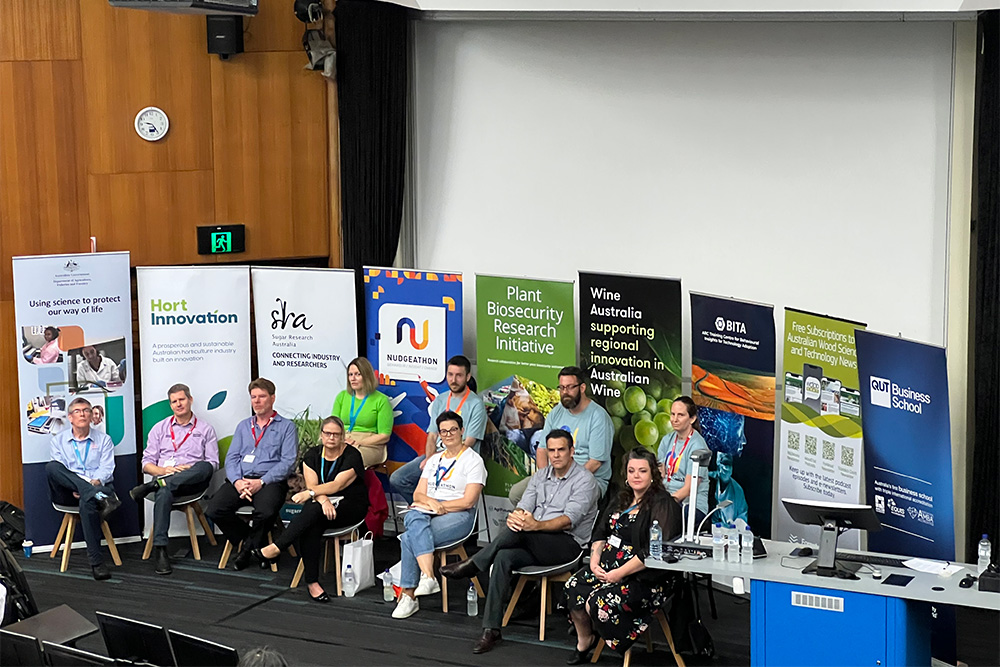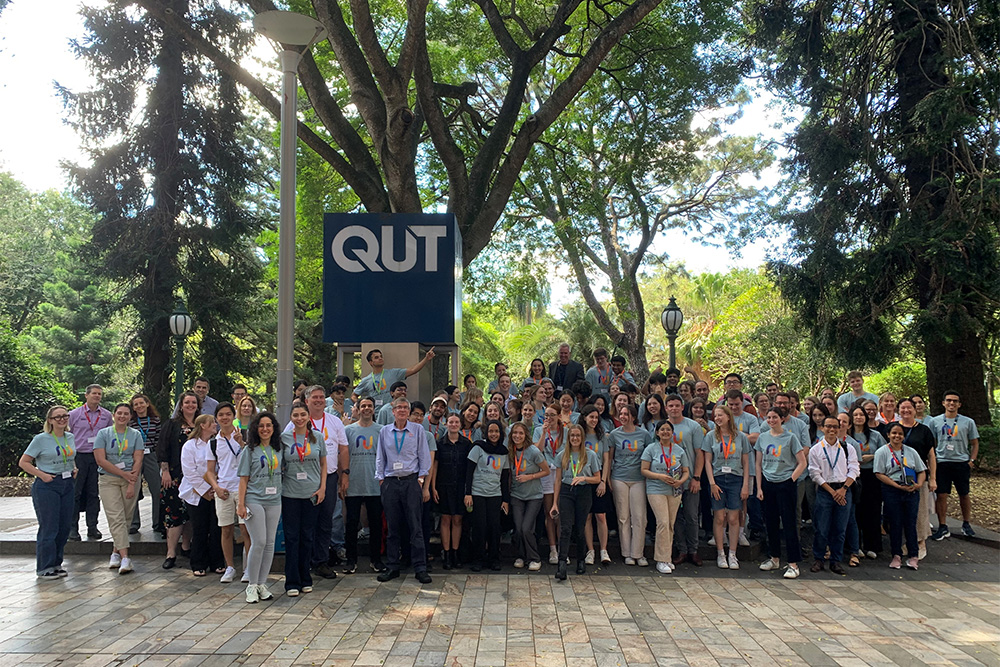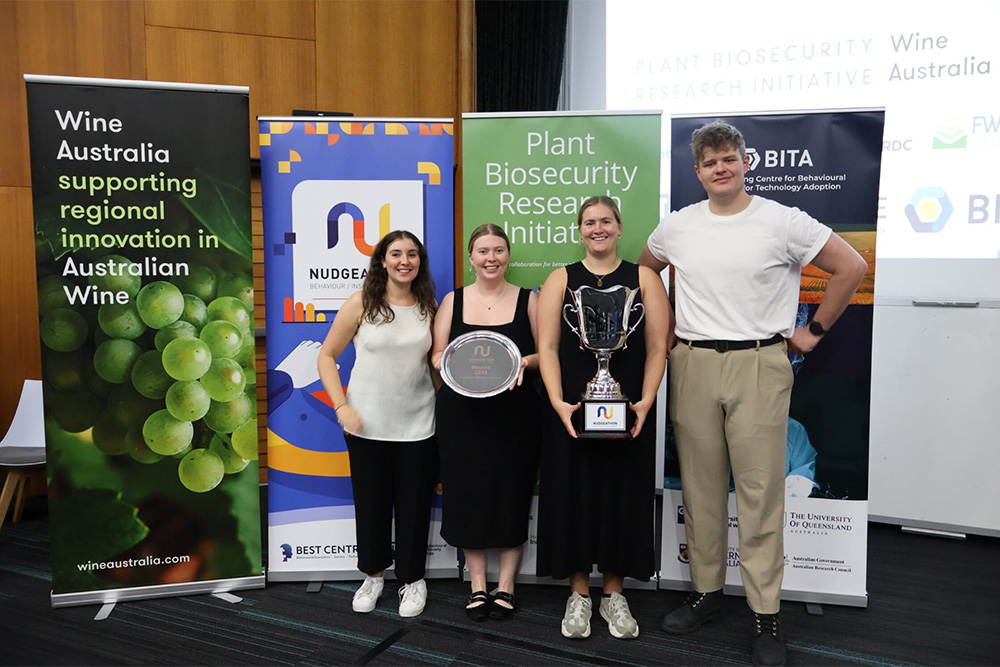Staff from the Plant Protection and Environmental Biosecurity offices travelled to Brisbane in April to take part in a subject matter expert panel for the Nudgeathon at the Queensland University of Technology. The Nudgeathon is an example of collaboration between government and behavioural scientists to find solutions which could benefit our farmers, agriculture and environment.

The Nudgeathon is a unique behavioural change competition focusing on real-world challenges—with this year’s focus being on biosecurity challenges. Partners from the Plant Biosecurity Research Initiative (PBRI) funded this year’s contest, working in collaboration with Dr Stephen Whyte from the Queensland University of Technology. Using key theories from behavioural economics, behavioural interventions are designed to influence people’s choices in predictable ways without restricting their options or significantly changing their economic incentives.
This year two biosecurity challenges were posed:
In challenge one, teams addressed the importance of preparedness for biosecurity emergencies, designing interventions for farmers, growers, and businesses to recognise and respond to any and all biosecurity emergencies.
In challenge two, teams focused on citizen science, on how to engage the public in identifying and reporting biosecurity risks for better management of invasive species.
The teams that entered the competition comprised undergraduate and postgraduate students, government officials, and industry professionals.
Dr Jo Lee, one of the expert panel along with Brendon Reading and Andrew Pearce, said the energy across the 3-day event was amazing.
“It was great to be involved and see so many bright and enthusiastic people exploring novel ideas to address wicked problems.”

The winning team were a group of staff members from the Queensland Department of Premier and Cabinet, who developed a winning solution for challenge one.
Their solution was to encourage farmers to develop and implement biosecurity plans by socialising the concepts through trusted peer ambassadors such as vets, agronomists, or local farmers during their regular farm visits. Biosecurity risks would be woven into routine work discussions, with the ambassador providing expert knowledge and guidance on implementation of preventative and preparedness strategies using a biosecurity workbook to track progress. In this way, the ambassador would ‘nudge’ the farmers to think about and implement their biosecurity plans.
To find out about all the innovative solutions proposed by the various teams to both challenges, visit: https://research.qut.edu.au/best/nudgeathon-2024/




